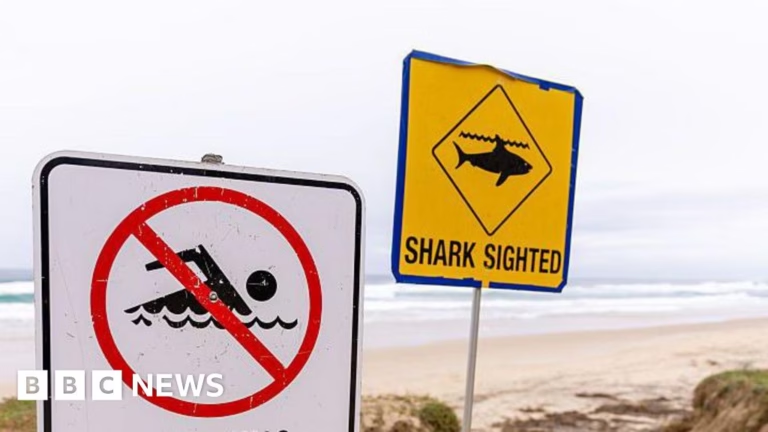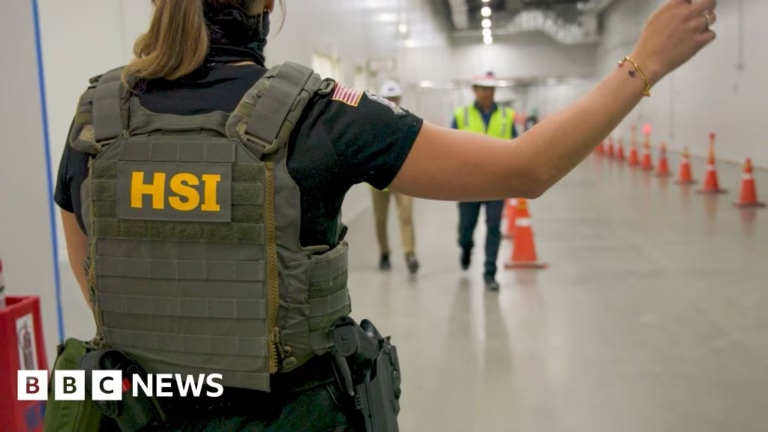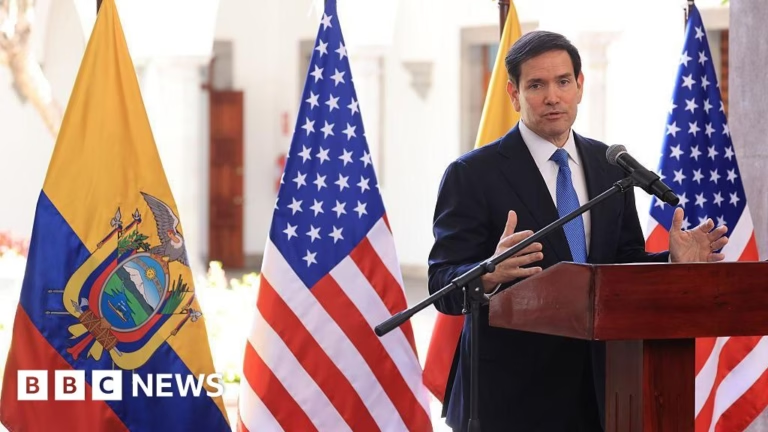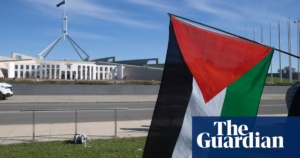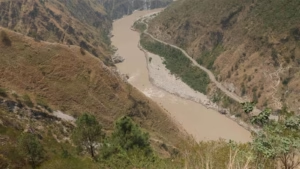
Getty Images
Before the events of 3 December 2024, Lee Jae–myung’s path to South Korea’s presidency was littered with obstacles.
Ongoing legal cases, investigations for corruption and allegations of abusing power all looked set to derail the former opposition leader’s second presidential bid.
Then a constitutional crisis changed everything.
On that night, former president Yoon Suk Yeol’s abortive attempt to invoke martial law set in motion a series of events that appears to have cleared the path for Lee.
Now, as the Democratic Party candidate, he is the frontrunner to win South Korea’s election on 3 June.
It’s a dramatic reversal of fortunes for the 61-year-old, who at the time of Yoon’s martial law declaration stood convicted of making false statements during his last presidential campaign in 2022.
Those charges still cast a long shadow over Lee, and could yet threaten his years-long pursuit of the top job. But they are also just the latest in a string of controversies that have dogged him throughout his political career.
The outsider
A rags-to-riches origin story combined with a bullish political style has made Lee into a divisive figure in South Korea.
“Lee Jae-myung’s life has been full of ups and downs, and he often takes actions that stir controversy,” Dr Lee Jun-han, professor of political science and international studies at Incheon National University, tells the BBC.
These actions typically include attempts at progressive reform – such as a pledge, made during his 2022 presidential campaign, to implement universal basic income scheme – which challenge the existing power structure and status quo in South Korea.
“Because of this, some people strongly support him, while others distrust or dislike him,” Dr Lee says. “He is a highly controversial and unconventional figure – very much an outsider who has made a name for himself in a way that doesn’t fit traditional Democratic Party norms.”
Getty Images
In a recent memoir, Lee described his childhood as “miserable”. Born in 1963 in a mountain village in Andong, Gyeongbuk Province, he was the fifth of five sons and two daughters, and – due to his family’s difficult circumstances – skipped middle school to legally enter the workforce.
As a young factory worker, Lee suffered an industrial accident where his fingers got caught in a factory power belt, and at the age of 13 suffered a permanent injury to his arm after his wrist was crushed by a press machine.
Lee later applied for and was allowed to sit entrance exams for high school and university, passing in 1978 and 1980 respectively. He went on to study law with a full scholarship, and passed the Bar Examination in 1986.
In 1992, he married his wife Kim Hye-kyung, with whom he has two children.
He worked as a human rights lawyer for nearly two decades before entering politics in 2005, joining the social-liberal Uri Party, a predecessor of the Democratic Party of Korea and the ruling party at the time.
While his poor upbringing has drawn scorn from members of South Korea’s upper class, Lee’s success in building his political career from the ground up has earned him support from working-class voters and those who feel disenfranchised by the political elite.
He was elected mayor of Seongnam in 2010, rolling out a series of free welfare policies during his tenure, and in 2018 became governor of the broader Gyeonggi Province.
Lee would go on to receive acclaim for his response to the Covid-19 pandemic, during which he clashed with the central government due to his insistence on providing universal relief grants for all residents of the province.
It was also during this time that Lee became the Democratic Party’s final presidential candidate for the first time in October 2021 – losing by 0.76 percentage points. Less than a year later, in August 2022, he was elected as the party’s leader.
From that point on, Dr Lee says, Lee dialled back on the controversial, fire-and-brimstone approach for which he had become notorious – opting instead to play it safe and keep a low profile.
“After [Lee’s] term as a governor, his reformist image faded somewhat as he focused more on his presidential ambitions,” he says. “Still, on certain issues – like addressing past wrongs [during the Japanese colonial era], welfare and corruption – he has built a loyal and passionate support base by taking a firm and uncompromising stance.”
This uncompromising attitude has its detractors, with many members and supporters of the ruling People Power Party (PPP) viewing Lee as aggressive and abrasive in his approach.
Lee’s political career has also been marred by a series of scandals – including a drink driving incident in 2004, disputes with relatives in the late 2010s and allegations of an extramarital affair that emerged in 2018.
While in other parts of the world voters have shown forgiveness and even support for controversial politicians, in South Korea – a country that is still relatively conservative in what it expects of public figures – such scandals have not typically played well.
The weight of scandal
In recent years, Lee’s political ambitions have been saddled with even more pressing controversies – including the ongoing legal cases that continue to hang over him, threatening to hamstring if not scuttle his chances at election.
One of these concerns a string of high-profile charges, including corruption, bribery and breach of trust, associated with a land development project in 2023.
Another, perhaps more critical legal battle concerns allegations that Lee made a knowingly false statement during a debate in the last presidential campaign.
During the debate, which aired on South Korean television in December 2021, Lee had denied personally knowing Kim Moon-ki, a key figure in a corruption-ridden land development scandal who had taken his own life just days earlier.
Prosecutors allege that claim was false, thus violating the Public Official Election Act, and in November 2024 Lee was convicted of the false statements charge and given a one-year suspended prison sentence.
Then, in March, an appeals court cleared him of the charges – only for that ruling to be overturned by South Korea’s Supreme Court. At the time of writing, the case is still awaiting a verdict.
Other threats against Lee’s future political ambitions posed a more fatal danger.
Getty Images
In January 2024, while answering questions from reporters outside the construction site of a planned airport in Busan, Lee was stabbed in the neck by a man who had approached him asking for an autograph.
The injury to Lee’s jugular vein, though requiring extensive surgery, was not critical – but he now campaigns behind bulletproof glass, wearing a bulletproof vest, surrounded by agents carrying ballistic briefcases.
The assailant, who had written an eight-page manifesto and wanted to ensure that Lee never became president, was later sentenced to 15 years in prison.
The attack raised concerns about deepening political polarisation in South Korea – embodied perhaps most publicly in the bitter rivalry between Lee and Yoon, and more privately in the country’s increasingly extreme online discourse.
In December 2023, just weeks before Lee was attacked, a survey sponsored by the newspaper Hankyoreh found that more than 50% of respondents said they felt South Korea’s political divide worsening.
Some claim that, as Democratic Party leader, Lee played a major role in fuelling the problem, frequently blocking motions by Yoon’s government and effectively rendering him a lame duck president.
Such constant stonewalling by the Democratic Party only exacerbated Yoon’s leadership struggles – which also included repeated impeachment attempts against administration officials and constant opposition to his budget.
Finally, as the pressure against him mounted, the former president took the drastic step of declaring martial law.
Opportunity in crisis
Yoon’s declaration of martial law on 3 December – made in a self-proclaimed bid to eliminate “anti-state forces” and North Korea sympathisers – served as the catalyst for Lee to emerge as a leading presidential candidate.
Within hours of the declaration, Lee appealed to the public via a livestream broadcast and urged them to assemble in protest outside the National Assembly building in central Seoul.
Thousands responded, clashing with police and blocking military units as opposition lawmakers rushed into the assembly building, clambering over fences and walls in a desperate attempt to block Yoon’s order.
Lee was among them, climbing over the fence to enter the National Assembly and helping to pass the resolution to lift martial law.
Getty Images
The Democratic Party later decided to impeach President Yoon – a decision that was unanimously upheld by South Korea’s Constitutional Court on 4 April, 2025.
It was then that Lee began the path to a full-fledged election bid, announcing his resignation as leader of the Democratic Party on 9 April ahead of his presidential run. In the Democratic Party presidential primary held on April 27, he was selected as the general candidate with overwhelming support.
The result of Yoon’s abortive martial law attempt was a political maelstrom from which South Korea is still reeling: a constitutional crisis that ended the former president’s career and left his PPP in tatters.
But of the small few who have managed to leverage that chaos to their advantage, none have benefitted more than Lee.
Now the controversial presidential candidate awaits the verdict on his political future – not only from the South Korean people, but also the courts.
If his guilty ruling is ultimately confirmed, Lee will likely lose his seat in the National Assembly. As a candidate, that would prevent him from running for president for a period of five years.
But with the courts having now approved Lee’s request to postpone his legal hearings until after the election, another possibility has emerged: that Lee, who remains the electoral favourite, could be convicted after winning the presidency.
And that could mean that South Korea, having just endured a months-long period of political turmoil, may not be done with its leadership dramas just yet.
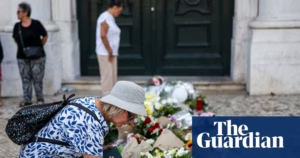
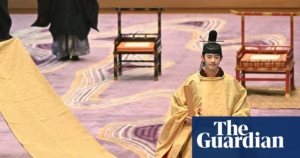
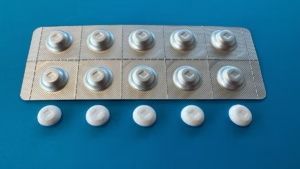
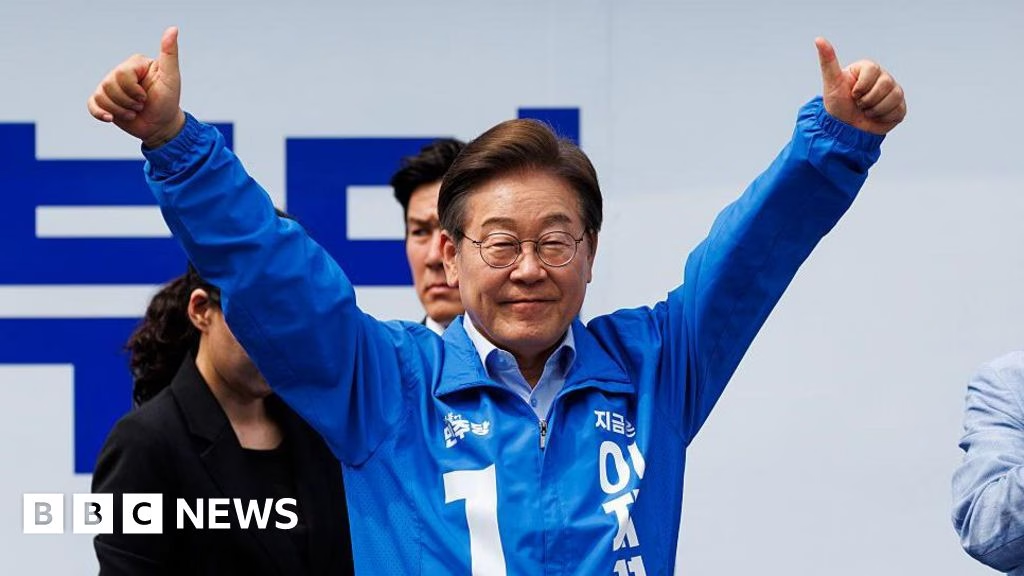

)
)
)
